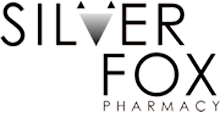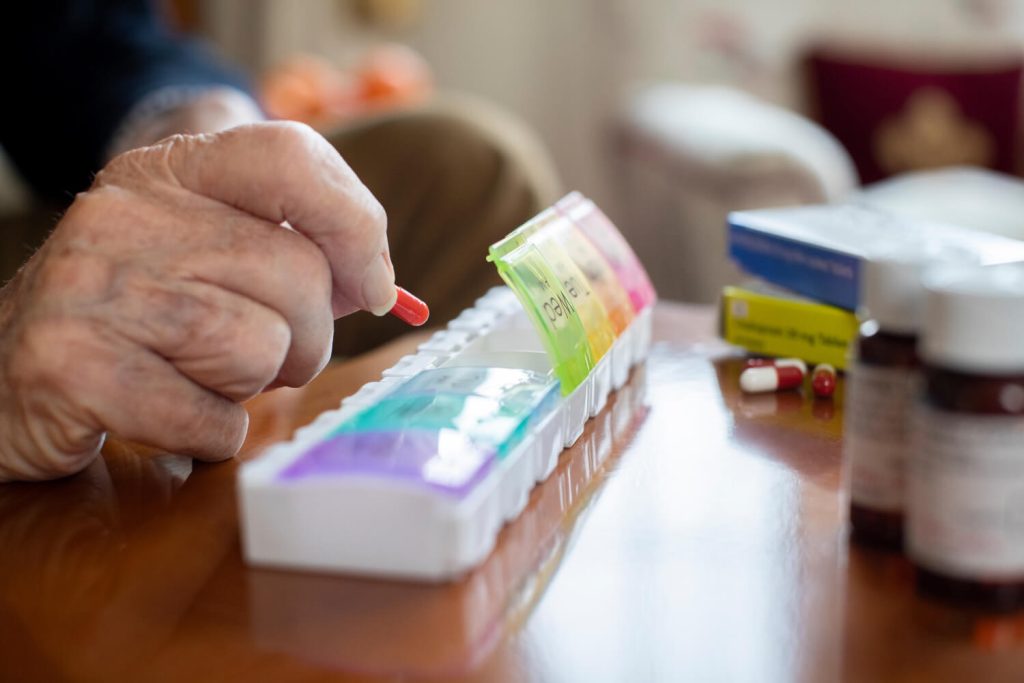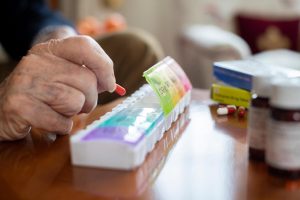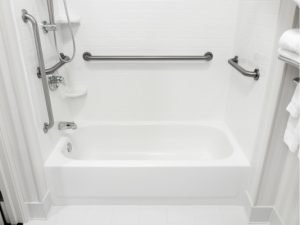Effective medication management is crucial in long-term care homes to ensure the well-being of residents. With many residents taking multiple medications, the process must be organized, accurate, and safe. To facilitate this, long-term care facilities rely on a range of essential products specifically designed for medication management. We’ve put together a list of 9 essential products to simplify medication management:
1. Medication Carts
Medication carts are mobile storage units equipped with drawers and compartments designed to store and organize medications securely. These carts are essential for medication distribution as they allow healthcare providers to bring the medications directly to residents’ rooms, ensuring timely administration and reducing the risk of errors.
2. Medication Administration Records (MARs)
MARs are crucial documents that track each resident’s medication regimen. These records detail the name of the medication, dosage, frequency, and the healthcare provider responsible for administering it. MARs provide a clear overview of each resident’s medication schedule, helping prevent missed doses and medication errors.
3. Medication Cups and Dispensers
Medication cups and dispensers are designed to measure and distribute precise doses of liquid medications. They often have easy-to-read volume markings, making it easier for healthcare providers to ensure accuracy in administering liquid medications.
4. Pill Organizers and Medication Trays
Pill organizers and medication trays are indispensable for managing oral medications. These products are divided into compartments for each medication dose, often organized by day and time. Residents’ medications can be pre-filled into these organizers, streamlining the medication administration process and reducing the risk of confusion.
5. Medication Crushers and Splitters
For residents who have difficulty swallowing whole pills, medication crushers and splitters are essential tools. Crushers help transform solid pills into a powdered form that can be mixed with food or liquid, while splitters accurately divide pills into smaller doses.
6. Medication Administration Devices
Medication administration devices, such as insulin pens or inhalers, are essential for residents with specific medical conditions that require specialized medication delivery methods. These devices should be easily accessible and properly maintained to ensure residents receive their medications as prescribed.
7. Barcode Scanners and Medication Verification Systems
Barcode scanners and medication verification systems are technology-driven tools that enhance medication safety. By scanning barcodes on medication packaging and residents’ identification, healthcare providers can verify that the right medication is administered to the right resident at the right time, significantly reducing the risk of errors.
8. Medication Refrigerators and Storage Units
Certain medications require specific storage conditions, including temperature control. Medication refrigerators and storage units equipped with temperature monitoring systems are essential to ensure the efficacy and safety of medications that need refrigeration or controlled storage.
9. Medication Disposal Containers
Proper disposal of expired or unused medications is crucial to prevent accidental ingestion or environmental contamination. Medication disposal containers provide a safe and secure way to dispose of medications, ensuring they are not accessible to unauthorized individuals.
Effective medication management is a top priority in long-term care homes to maintain residents’ health and well-being. The products above not only streamline the workflow of healthcare providers but also play a crucial role in preventing medication errors and ensuring residents receive the care they need.
